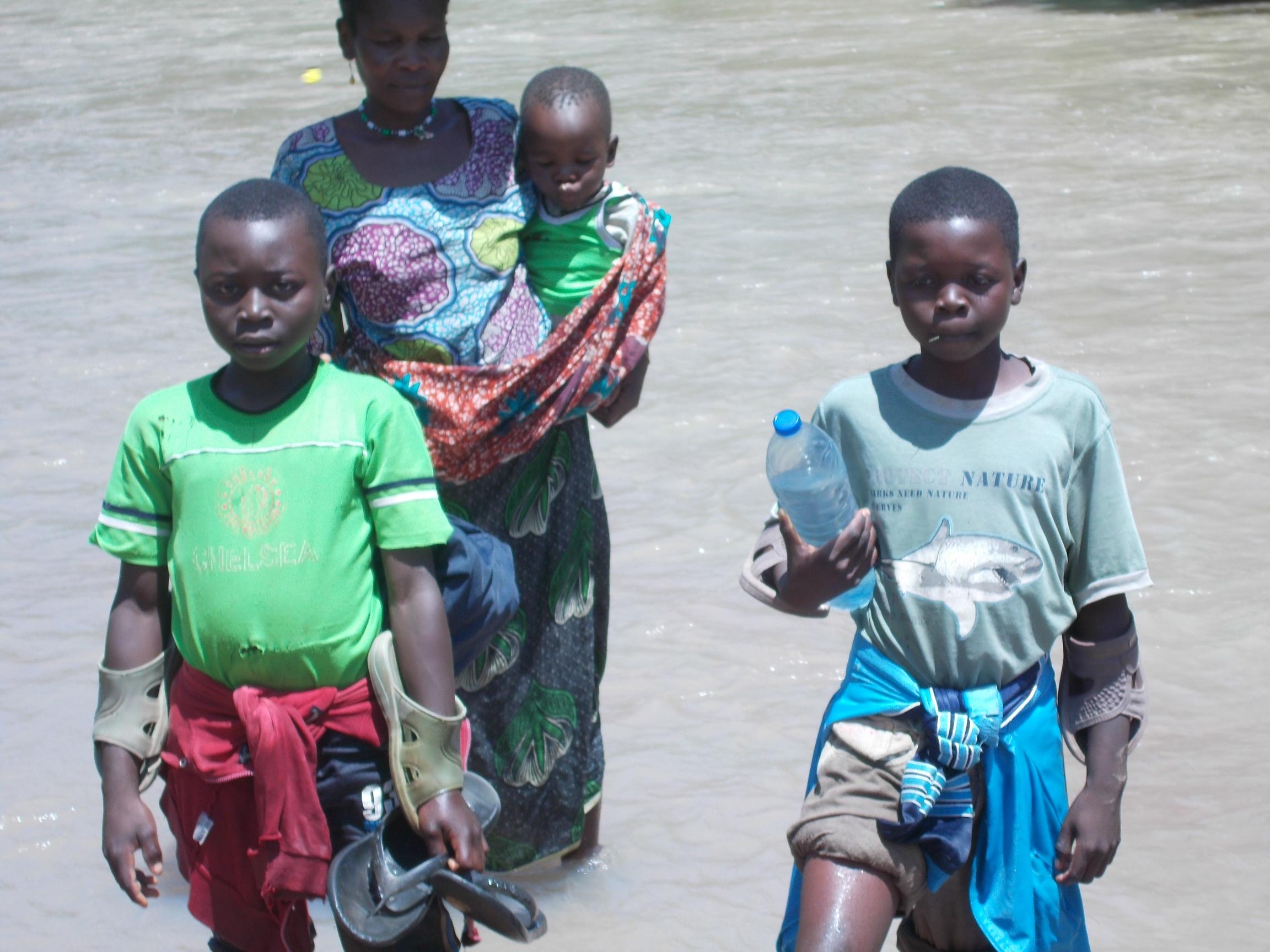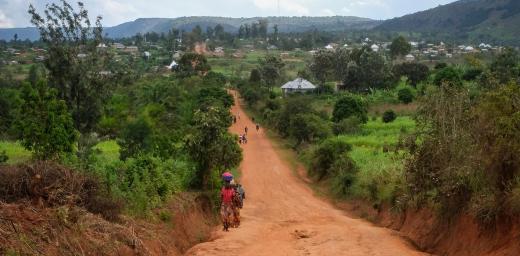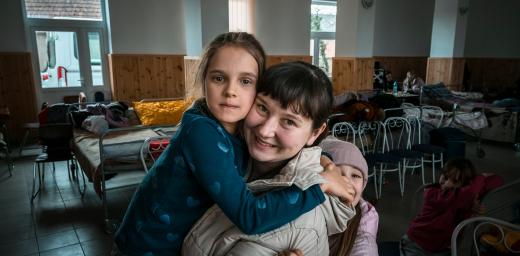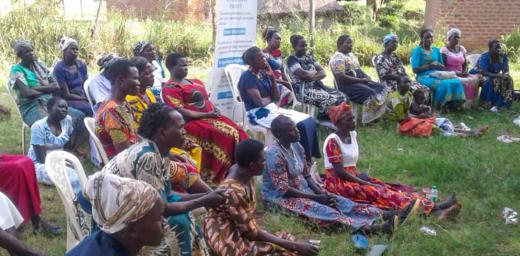Empowering Local Partners to Restore Stability

Bohong villagers had to flee their homes after a Seleka rebel attack in mid-August. Photo: EELCAR
LWF Emergency Response in CAR Targets Women’s Groups
BANGUI, Central African Republic/GENEVA, 18 September 2013 (LWI) – When a group of armed fighters destroyed the offices of a women's association in Ndele, northeastern Central African Republic (CAR), they broke into the safe and took away documents and savings meant for income-generating activities that sustain community livelihoods.
Like thousands of other civilians caught in the 2012 to 2013 rebellion between the Séléka rebel group and CAR government troops, members of the women's association fled their villages to the isolated countryside, where they adapted to surviving on what could grow there.
Fragile peace has been restored in CAR, with a transitional government in place since May, but the security situation remains highly unstable.
The Lutheran World Federation (LWF) is among humanitarian organizations that will provide assistance to support and protect war-affected vulnerable communities in the country where an estimated 227,800 people have been displaced internally and over 62,000 have fled to neighboring countries.
Restoring Livelihoods
The LWF’s intervention, coordinated under ACT Alliance, will prioritize collaboration with local partners to restore livelihoods destroyed by the prolonged civil instability and lawlessness in the country of 4.6 million people.
In an interview with Lutheran World Information (LWI), Daniel Bangui, coordinator of the LWF’s Department for World Service (DWS) emergency program in CAR which was set up in August 2013, explained why the LWF’s support, starting with the northeastern region of Ndele, primarily will seek to rebuild socio-economic structures and empower women’s groups to restore micro-credit activities.
“The current crisis in CAR adds on to previous ones of mutinies and rebellions that have left deep marks in society. Vulnerability of populations which were already fragile before has increased,” said Bangui.
In a country where the majority of people live in rural areas and unemployment is growing, it is critical to rehabilitate local groups that provide income-generation opportunities for entire communities, he said.
A Productive Force
Bangui underlined the role of women in the rebuilding the country. “It is important to understand that women take care of households, work on the farm, fetch water, go to the market and so on. They are a productive force.”
The LWF’s support to the women’s association, an umbrella body of 73 women’s groups, will include rehabilitating the office that was pillaged, securing capital to resume income-generating activities, and training on emergency preparedness.
The women’s groups will engage in small-scale trade supported by both agricultural and livestock-based activities, Bangui said.
Training on emergency preparedness will help the population to understand the minimum one should take when forced to flee, such as identity documents and how to keep such papers safe. Basic measures will also be taught on how to purify water for drinking to avoid diarrhea among children, and how to make enriched flour, among other survival and safety skills.
Meeting Critical Humanitarian Need
An LWF assessment in July identified the Ndele region as one of the areas facing the most critical humanitarian needs. High food prices have compelled populations to consume seeds meant for planting during the current agricultural season. Cattle have been stolen or killed, considerably reducing the local population’s means for survival. Degradation of infrastructure and lack of latrines has exacerbated poor sanitation and chronic inaccessibility to clean, safe water.
Other LWF intervention areas will include the Nana-Mambere prefecture where civilians were subjected to armed banditry and extortions. Institutions that were looted in the area included a health center run by the Evangelical Lutheran Church in Central African Republic in Gallo town, and an ambulance that provided mobile clinics was pillaged. In Paoua town and surrounding territories, where entire villages were burned and populations were displaced into relatively safe remote areas, emergency response will include rehabilitation of basic social services and psychosocial support to address the widespread fear to return to the villages.
The Evangelical Lutheran Church in America (ELCA) is a core supporter of the LWF’s intervention in CAR, with a contribution of USD 250,000.
“The situation is bad and will only keep getting worse if action is not taken,” Willibroad (Willie) Langdji, of the ELCA Global Mission’s West Africa Desk, told LWI, and underlined the call of Christians to respond to the needs of other people.
“We hope our support will encourage others in the communion [to support the response] as well,” said Anne Ruedisili Langdji, who serves as ELCA West Africa regional representative together with Willie Langdji.





